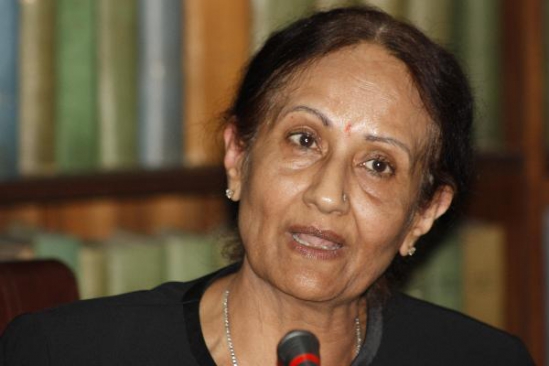×
The Standard e-Paper
Home To Bold Columnists

Judicial Service Commission (JSC) yesterday issued a four-month notice of retirement for Deputy Chief Justice Kalpana Rawal and set in motion plans to have her replacement in office by the time she leaves the Supreme Court on January 15, 2015.
In a move which analysts say underlies high-voltage succession battle at the Supreme Court, the JSC said the decision was derived from a March 12, 2014 legal opinion by Attorney General Githu Muigai as well as “public concern”.